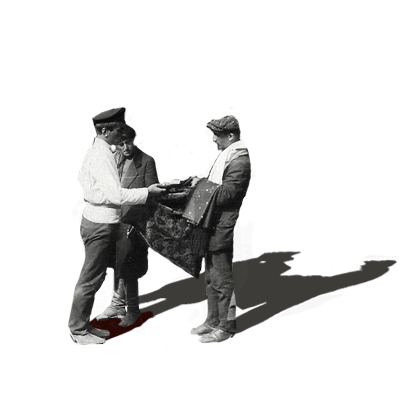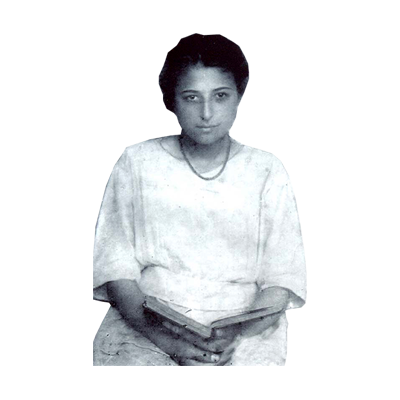
June 7
Russia’s recognition of Georgia’s territorial integrity
A treaty was signed between Soviet Russia and the republic of Georgia, and Russia recognized Georgia’s territorial integrity.
May 26
The Democratic Republic of Georgia

After the Transcaucasian Committee dissolved, Georgia’s independence was declared by the First Meeting of the National Council of Georgia in the Palace Hall. The Social Democrats assumed power in the country, though some ministers representing other parties were equally active in the political life of democratic Georgia. Noe Ramishvili was appointed the first Chairman of the Government of the independent republic.
May 28
Mina Horn
A temporary agreement of intent on the establishment of mutual understanding was signed between Germany and Georgia. Relevant negotiations between the Georgian and German delegations was held aboard the German Mina Horn ship in the Poti Port. The Prime Minister of independent Georgia was welcomed aboard with a toast in his honor. After a long deliberation, the temporary agreement between Germany and Georgia was signed:
A) The German Government de facto recognized the Government of Georgia
B) Germany assumed supervision over Georgia’s railroads throughout the war.
May 29
Negotiations with Germany

Noe Ramishvili returned to Tbilisi and reported to the National Council. The council commended the achievements and adopted a resolution that reads, “Having familiarized itself with the Government’s report on negotiations with Germany, the National Council of Georgia approves of the Government’s steps, being convinced that the Government will do its best to ensure the independence of the Democratic Republic of Georgia.”
May 31
Ottoman incursion
The Government made a decision to oppose fiercely Ottoman troops if they attack Georgian territory.
June 4
Georgian-Ottoman Peace Treaty

Under Noe Ramishvili’s leadership, a peace treaty was signed between Georgia and the Ottoman Empire. By authority of this 12-point agreement, the Ottoman Empire, besides Batumi and Artaani granted to it through the Brest-Litovsk Treaty, received the Akhaltsikhe and Akhalkalaki Provinces (with the exception of Abastumani and Atzkuri).
June 8
Government Meeting
After having familiarized itself with a report of the delegation of the Baku-based Georgians, the Government decreed to agree with the Ukrainian Council to protect the interests of Georgians in Baku, also to request from the German representative to deliver to Mirbach in Russia the Georgian Government’s request about the protection of the interests of the Georgians in Russia.
June 19

After the signing of the Agreement between the Democratic Republic of Georgia and the People’s Council of Abkhazia—according to which the Minister of Abkhazian Affairs was appointed within the Government of Georgia—at the request of the People’s Council of Abkhazia, and at the decree of the Army Minister of Georgia, General Giorgi Mazniashvili was appointed Governor General of Abkhazia.
June 24
Cabinet Reshuffle
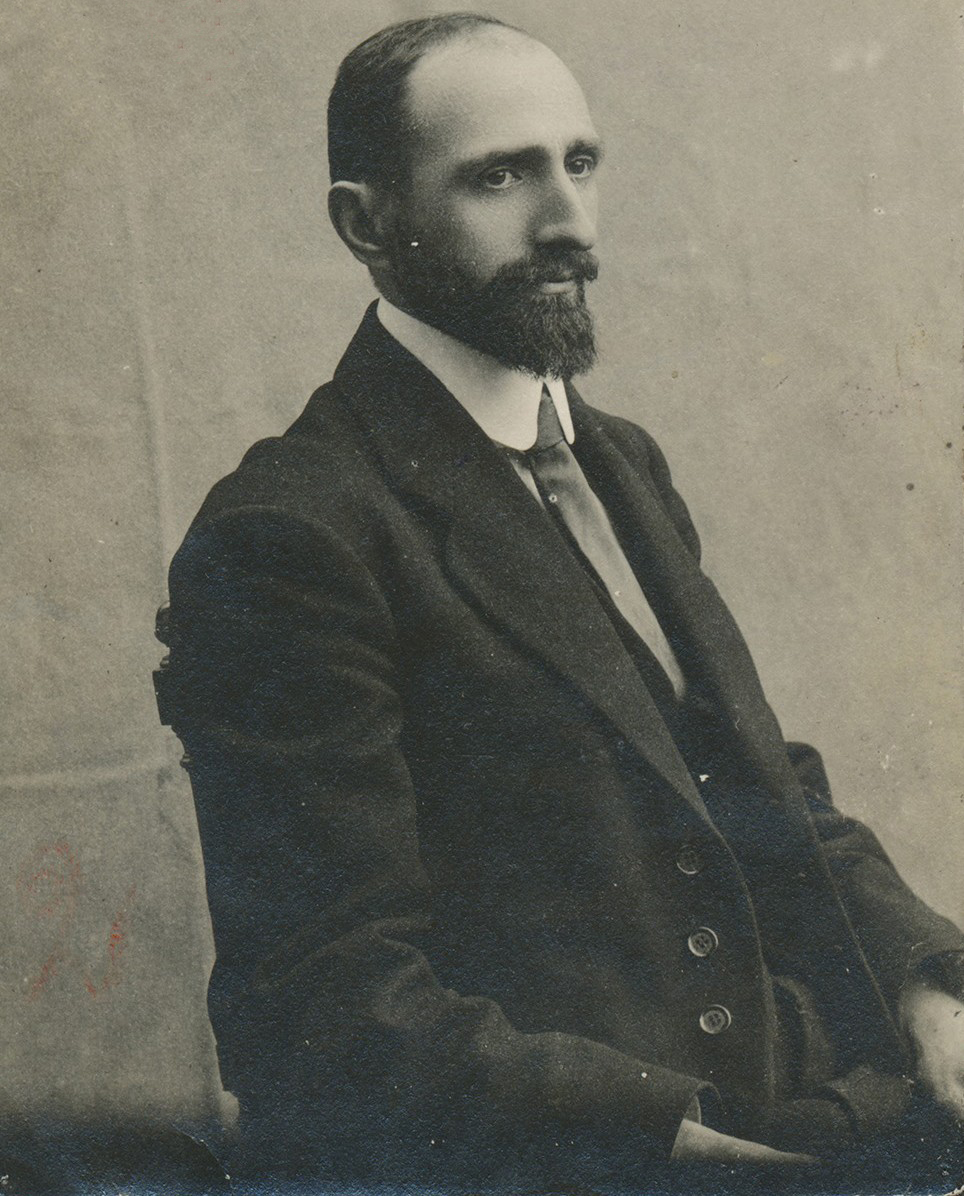
The Cabinet of Noe Ramishvili submitted a resignation note to the National Council who upheld the request. Noe Zhordania was granted due authority and instructed to form a new cabinet. Ertoba newspaper: “The Government needs a leader enjoying trust from all democratic groups. One such democratic leader is N. Zhordania.”
July 2
Project for the Reorganization of the Georgian Army
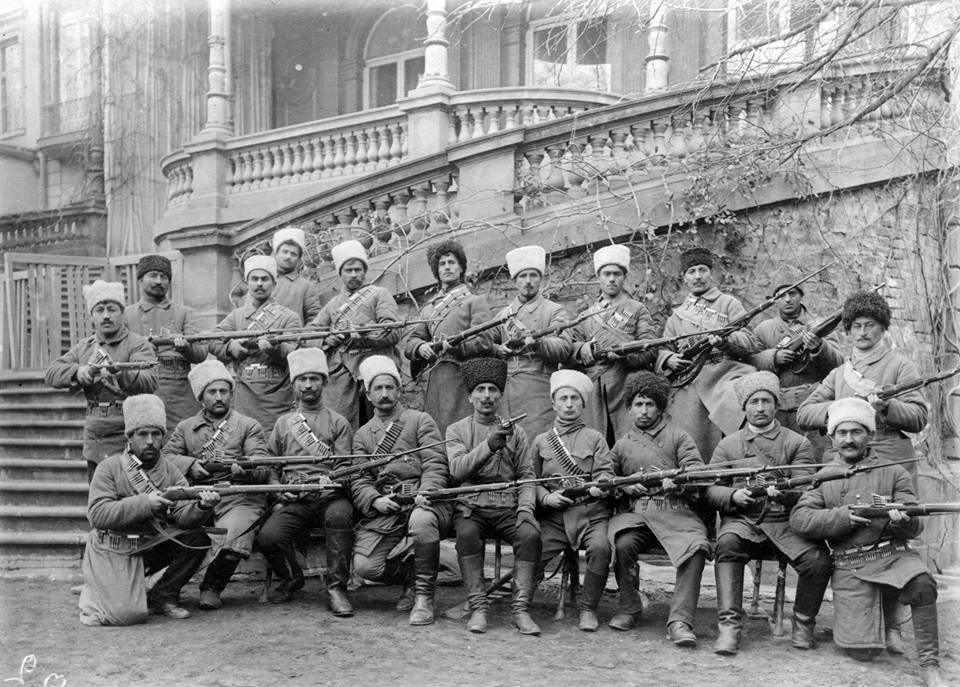
The Parliament of Georgia approved the Law on the Establishment of Armed Forces. Acclaimed military figures, Generals Giorgi Kvinitadze and Vasil Gabashvili developed the Project for the Reorganization of the Georgian Army base on the principle of territorial composition of the regular army. The former Red Guard was transformed into the National Guard of the Democratic Republic.
July 16
Citizen of the Republic

The National Council of Georgia approved the Provision on Citizenship of the Democratic Republic of Georgia that defines Georgian citizens as:
A) Any residents living in the Republic of Georgia, or registered in any administrative entity of the Republic prior to July 19, 1914, are considered citizens of Georgia.
B) Citizens of Georgia are not allowed to be citizens of other states.
C) Political rights in Georgia are granted exclusively to Georgian citizens.
August 24
Newspapers
The Chairman of the Government instructed every Minister to pay due attention to articles published by newspapers, which involve the performance of their respective agencies, and to ensure timely investigation into issues raised in such articles, if necessary.
August 27
Recognition of Georgia’s Independence
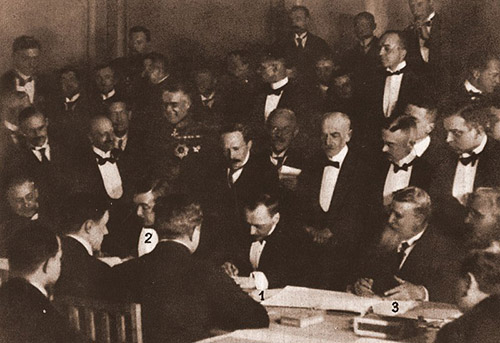
Germany and Soviet Russia signed the Appendix to the Brest-Litovsk, with its Article 13 stipulating Russia’s consent to the recognition of Georgia’s independence by Germany.
Summer
Ertoba newspaper
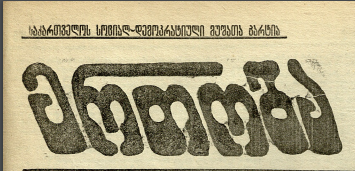
Ertoba newspaper described the public and political state of affairs in Georgia, “Despite all kinds of intrigues, external or internal, the Democratic Republic of Georgia remains the ideal oasis in the vast territories plagued by anarchy throughout Russia and Transcaucasia.”
September 20
National Coat of Arms
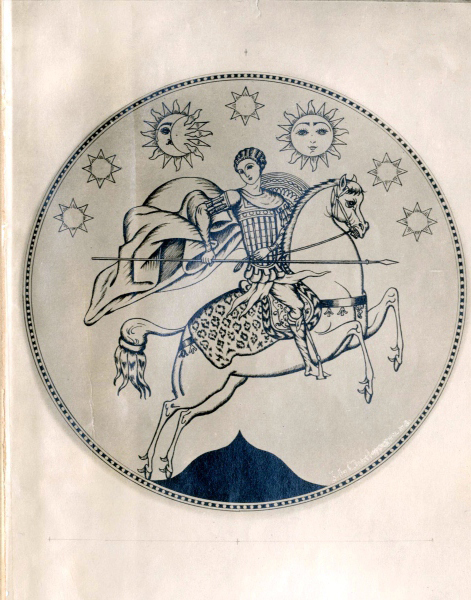
The National Council adopted the Law on the State Coat of Arms of Georgia. The coat of arms featured White Giorgi and the Seven Luminaries.
September 27
Georgian as Parliamentary language

The Georgian National Council’s meeting under the chairmanship of Carlo Chkheidze approved the text of the draft law on the parliamentary language adopted by the previous meeting. The rights of ethnic minorities caused minor debates, but it was ultimately decided that the language of one representative or another may not be understood by the Presidium or the Chairman, but in that particular case, the rights of the whole nation, not a smaller group, should be prioritized.
October 1
Georgian declared state language

The National Council adopted the Law on State Language stipulating that:
- The Georgian language is the state language of the Republic of Georgia
- All procedures and debates in the National Council of Georgia must proceed in Georgian
- Representatives of ethnic minorities, who do not speak the state language, are allowed to give speeches in their respective native tongues
October 4
Georgian Parliament
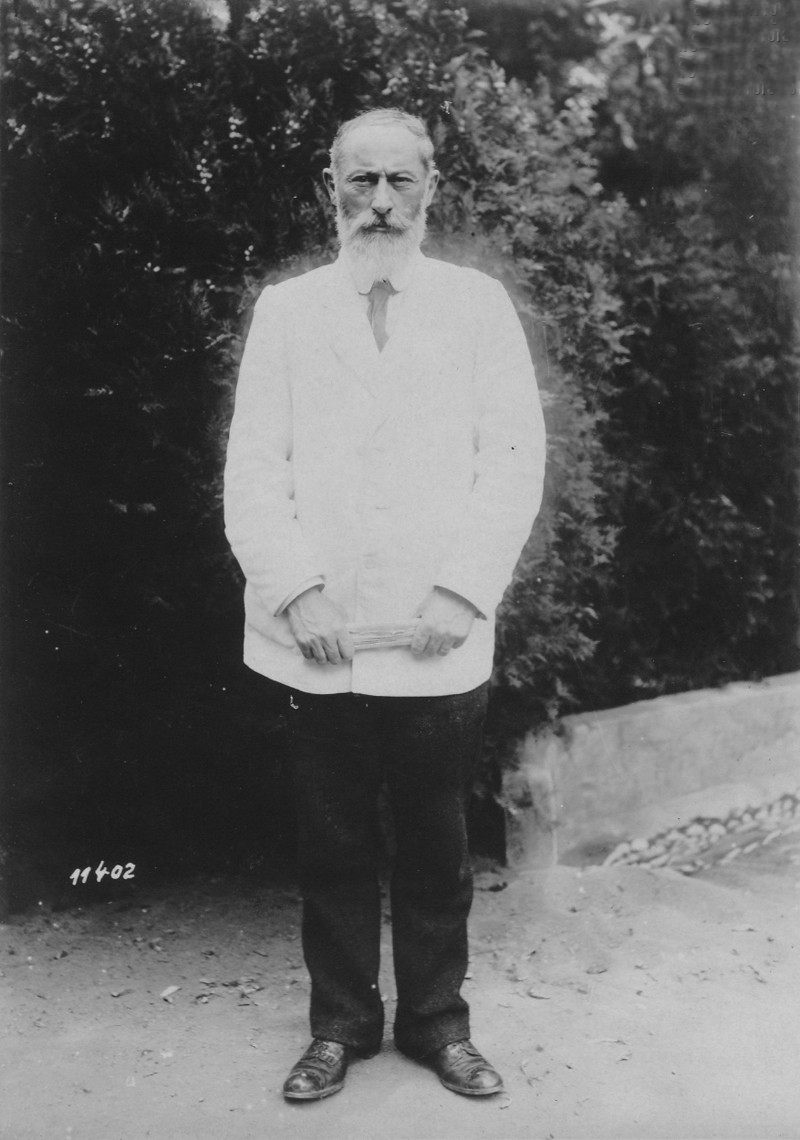
The National Council’s meeting debated the new name of the Legislative Council. The proposal of the Social Democrats was upheld, suggesting The Parliament of Georgia. Noe Zhordania commented, “By renaming the National Council to Parliament, it did not really turn into Parliament, remaining in essence the National Council.”
December 20
Armenian army’s incursion

After Armenia’s armed forces attacked Georgia’s border guard, the Georgian armed forces freed a large portion of the territory. At that critical moment, England lent a helping hand to the Armenian Government, with the Military Commission of Great Britain assuming the role of an arbiter and reconciling the parties. The Lore District was declared a neutral zone (The public commended the army’s success but decried the signed agreement.).
January 1
Nationalization of Judiciary
Throughout the territory of the Kutaisi Province, the judiciary was nationalized. Effective January 1, all court proceedings, trials, and records-keeping would be maintained in Georgian.
January 3
Declaration of estates as state property
The Parliament of Georgia adopted a law on the appropriation of all estates, facilities/buildings, and immovable property owned by “persons of royal descent” within the republic’s territory, declaring such entities as “state property.”
January 5
Terms of the Treaty with Armenia
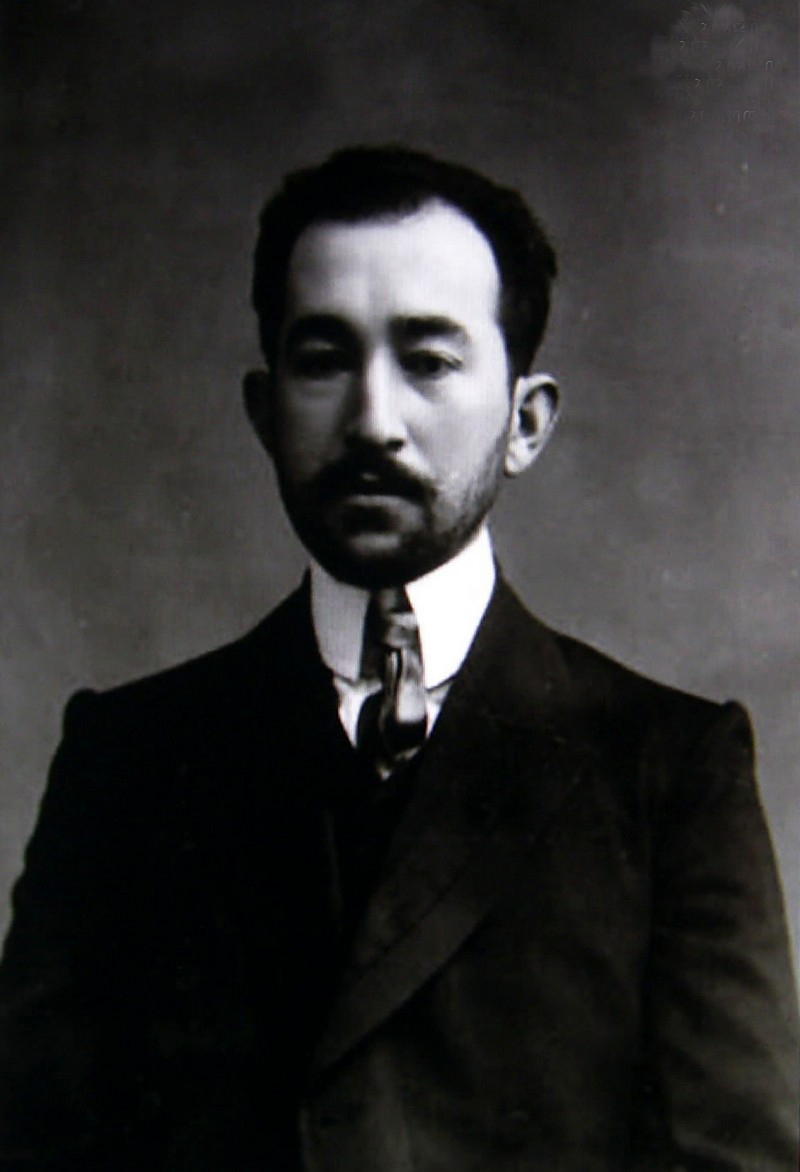
Foreign Minister Evgeni Gegechkori gave a speech at the Georgian Parliament’s meeting session and spoke about the terms of the ceasefire and the treaty with Armenia, also emphasizing the allies’ take on this issue. After three days of debates, the meeting accepted the terms of the treaty opposed fiercely by the National Democratic Party who believed them to be disadvantageous and detrimental to Georgia.
January 10
Georgia-Armenia Treaty Conference
The Georgia-Armenia Treaty Conference opened with the participation of delegates from England, France, Georgia, and Armenia. The conference was chaired by Colonel Stuart of England. Four meeting session in all were held. It was decreed that Georgia’s troops should remain in the positions held at the moment of ceasefire, at midnight, December 31.
January 17
Jury Provision
The National Council of Georgia adopted a legislative provision stipulating that jury members of both sexes had to be selected from among the citizens of Georgia with command of the Georgian language and reading and writing skills in other languages, above 25 years of age, and those having lived over one year in the province or city where jury members were selected.
February 14
Elections of Georgia’s Constituent Assembly
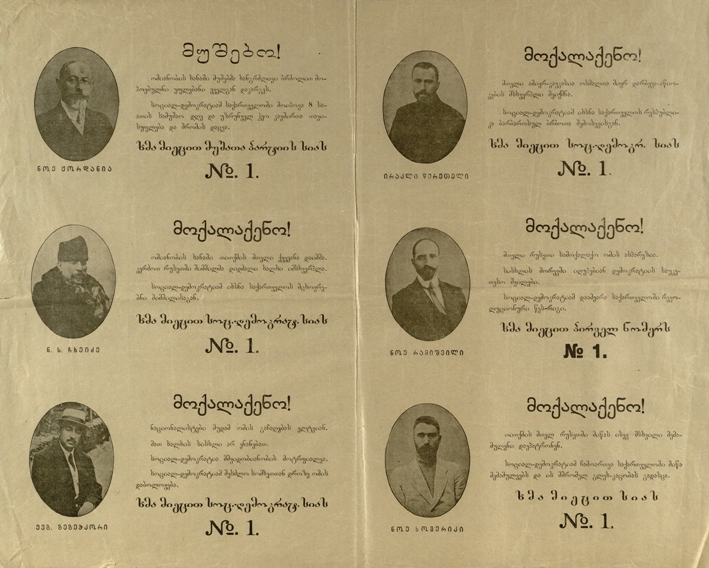
The final meeting session of the Georgian Parliament was held under the chairmanship of Chairman’s Mate of the Parliament Ekvtime Takaishvili. At the conclusion of the meeting, the Parliament adopted the law on the termination of its authority in relation to the Constituent Assembly. The Constituent Assembly would be summoned by the Parliament’s Presidium and the Central Election Commission.
March 18
Formation of a New Cabinet
The Constituent Assembly’s meeting instructed Noe Zhordania to form and lead a new Cabinet. The same meeting elected the remaining members of the Presidium of the Constituent Assembly. As the Mates of the Chairman of the Constituent Assembly, the Socialist Federalists and the National Democrats endorsed Svimon Mdivani and Ekvtime Takaishvili, respectively. The offices of the Constituent Assembly’s two junior secretaries were assumed by Kristine Sharashidze (Social Democrat) and Grigol Natadze (Socialist Revolutionary).
March 21
New Cabinet
The Constituent Assembly’s meeting approved the new Cabinet of the Democratic Republic of Georgia and its members: Noe Zhordania (Chairman), Evgeni Gegechkori (Foreign and Justice Minister), Noe Ramishvili (Interior, People’s Education, and Army Minister), Noe Khomeriki (Horticulture, Labor, and Roads Minister), and Konstantine Kandelaki (Finance, Trade, and Industry Minister).
June 16
Georgia-Azerbaijan Military Agreement
The Governments of Georgia and Azerbaijan executed the Military Defense Agreement, with signatories representing both parties. According to the agreement, “The signatory states are obligated to join all of their armed forces and military equipment to respond to all possible attacks threatening the independence and territorial integrity of the agreement’s one or both signatory states.”
February
International Conference
An international conference was held to discuss the issue of the territorial division between the Ottoman Empire and Transcaucasia. This forum linked Batumi’s future to providing Armenia with access to the Black Sea. Shortly thereafter, Batumi was declared porto franco, a decision retaliated by the Georgian Government through a note of protest. The Constituent Assembly decreed the return of Batumi under Georgia’s jurisdiction.
February 14
Giorgi Kvinitadze Appointed Commander-in-Chief
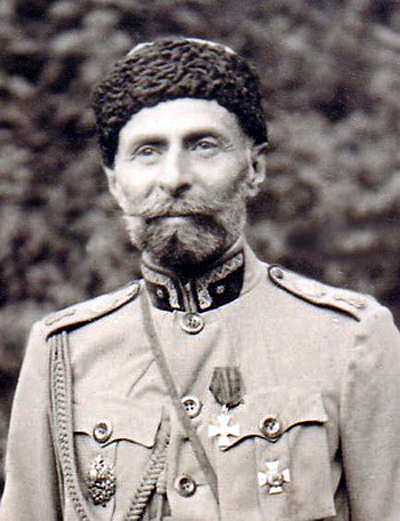
The Constituent Assembly of Georgia appointed General Giorgi Kvinitadze Commander-in-Chief of the Georgian Armed Forces.
February 15
The 1921 War Breaks Out
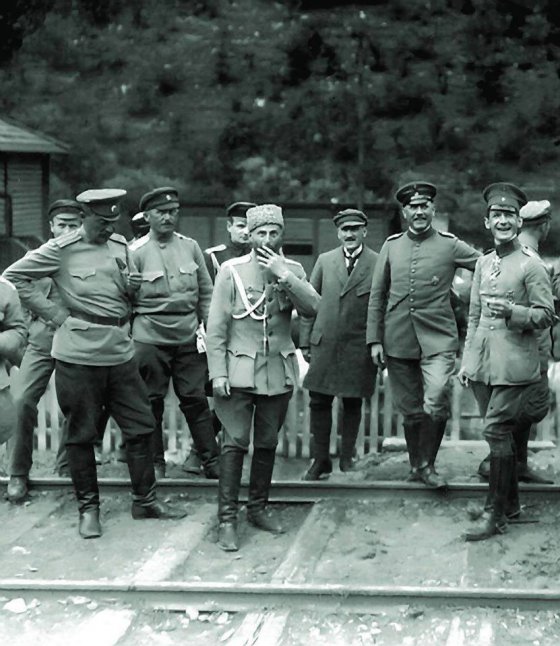
In February, the Bolsheviks started a war against Georgia. On the evening of February 15, Kvinitadze received a phone call from Commander Valiko Jugheli of the National Guard and asked him to join the emergency meeting at the Foreign Ministry. As it became evident during the meeting, without immediately organizing Tbilisi’s defense, the enemy would take the capital.
February 16
Red Army Enters
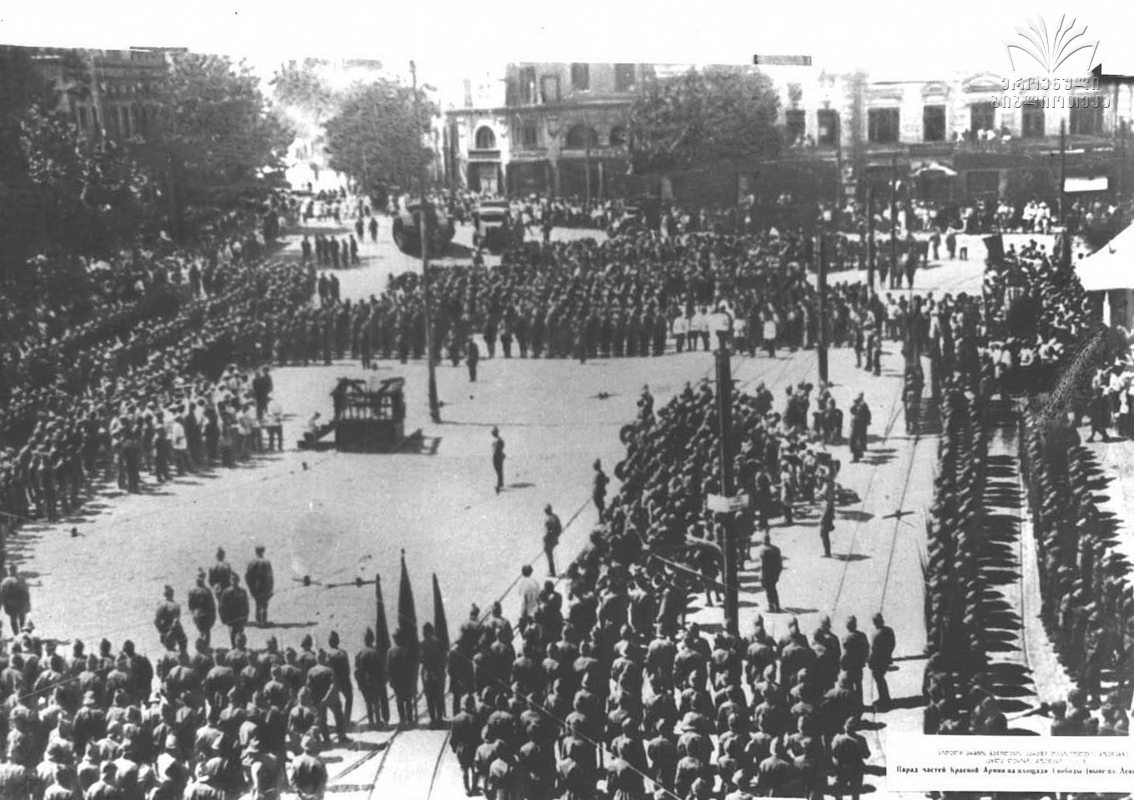
The Revolutionary Committee, established in Shulaveri, sent an appeal to Lenin to provide the Georgian people with military and political assistance. All this was passed off by Soviet Russia as the Georgian Bolsheviks’ revolt, so the Red Army entered Georgian territory.
February 21
Blatant Russian Aggression
As Soviet Communist Russia’s launched its blatant aggression, legislative work became even more active. The Constituent Assembly, on February 21, 1921, approved the Draft Constitution and declared it the main legislation of the Republic of Georgia.
February 24
Georgian Troops Vacate Tbilisi
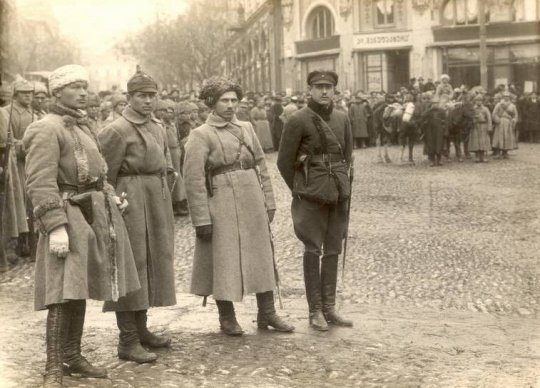
After several weeks of selfless fighting, the Georgian Army withdrew from Tbilisi.
February 25
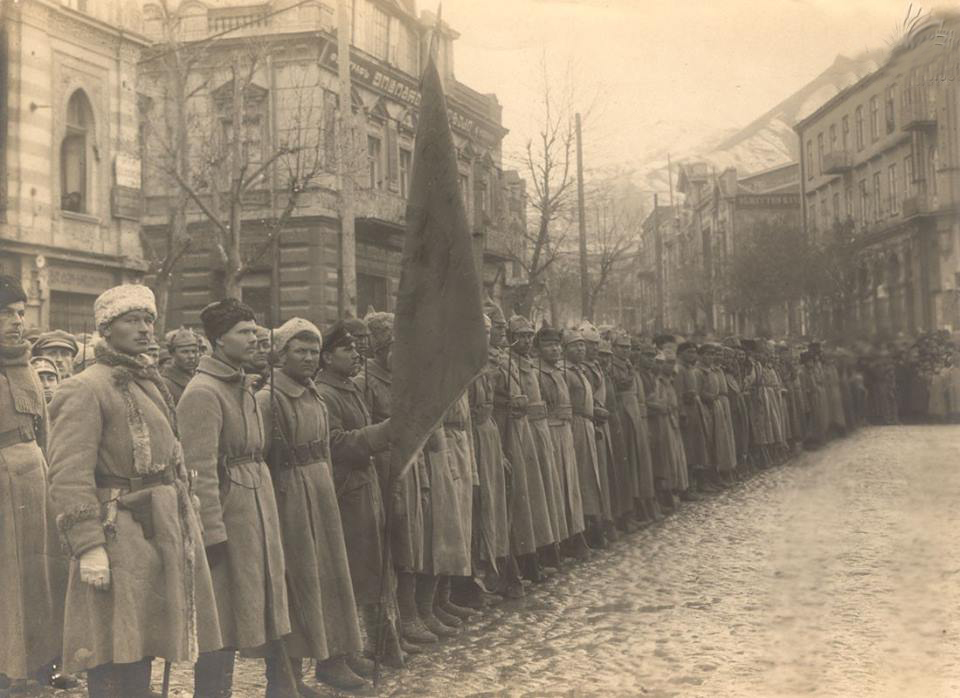
Soviet Russia’s army entered Tbilisi.
May 26
May 28
May 29
May 31
June 4
June 8
June 19
June 24
July 2
July 16
August 24
August 27
Summer
September 20
September 27
October 1
October 4
December 20
January 1
January 3
January 5
January 10
January 17
February 14
March 18
March 21
June 16
June 7
February
February 14
February 15
February 16
February 21
February 24
February 25













